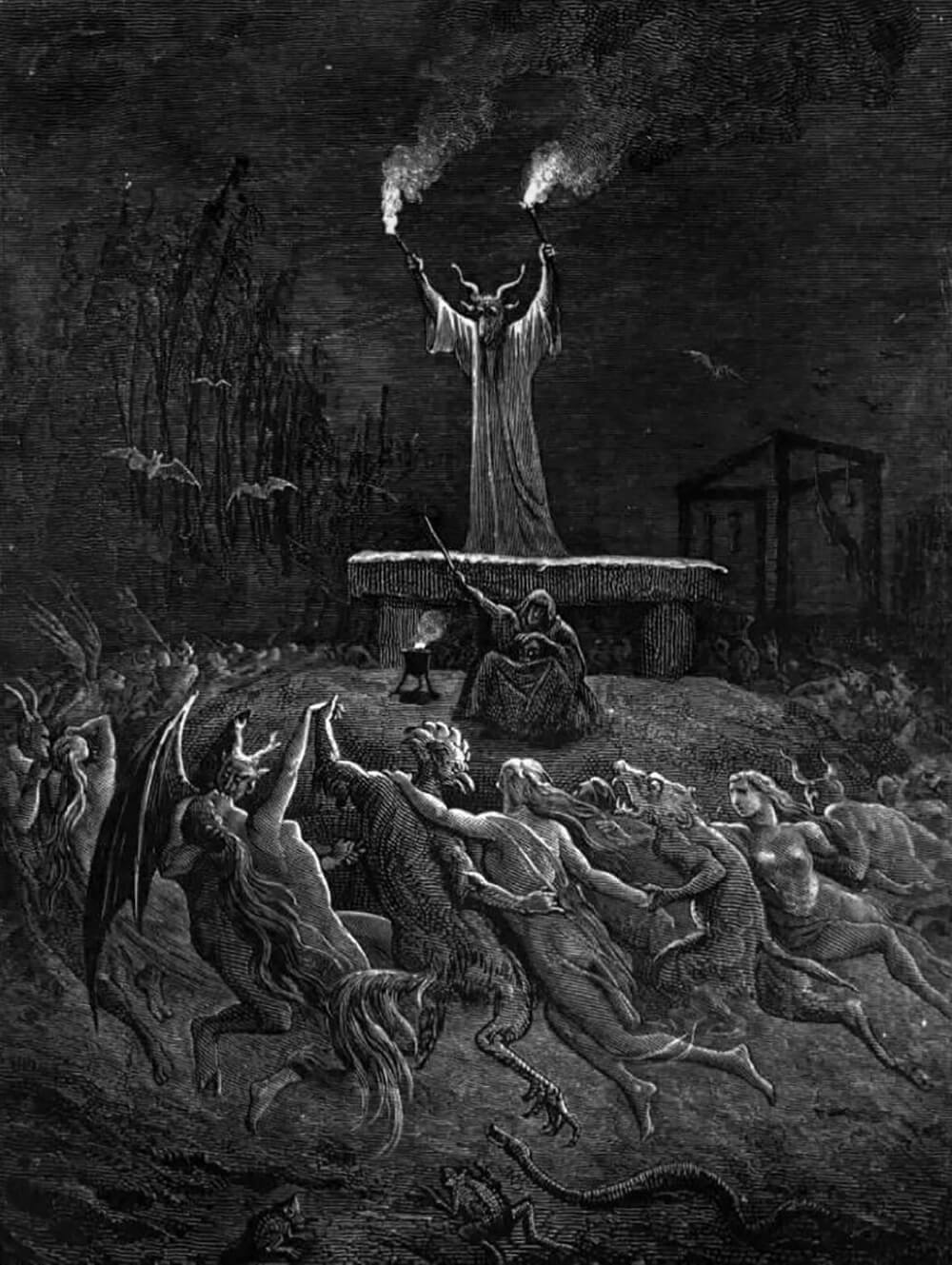Die erste Walpurgisnacht

And now I have still to reply to your inquiry about the Erste Walpurgis Nacht The matter stands thus. Amongst historical inquirers, there are some men, and moreover men whom we cannot but respect, who look for a real foundation for every fable, every tradition, however fantastic and absurd it may be, and always expect to find a kernel of fact, beneath the legendary husk. We owe a great deal of good to this mode of treating the matter; for the study demands great knowledge, nay, it is even necessary to have mind, wit, and imagination, to convert poetry into prose in this way. Thus, one of our German antiquarians has endeavoured to rescue, and to give an historical foundation for the story of the witches’ and devils’ ride on the Brocken, a legend which has been current in Germany, from time immemorial. His explanation is, that the heathen priests and patriarchs of Germany, when they were driven from their sacred groves, and when Christianity was forced upon the people, need to retire – at the beginning of spring – with their faithful followers, to the wild, inaccessible heights of the Harz mountains, in order, according to the ancient custom, there to offer prayer and flame to the unembodied god of heaven and earth. And further, in order to be safe from the armed spies and converters, he thinks, they may have found it well, to disguise a number of their own people, so as to keep their superstitious foes at a distance, and that thus, protected by the antics of devils, they carried out the purest of services.
I found this explanation somewhere, a few years ago, but cannot remember the name of the author. The idea pleased me, and I have turned this fabulous story back again into a poetical fable.
– Johann Wolfgang von Goethe in a letter to Carl Friedrich Zelter
In Die erste Walpurgisnacht, Goethe depicts a Druidic community that wishes to celebrate their spring festival, May Day, in peace. They are opposed by a fanatical and intolerant new religious regime, and some members of group warn the Druids to exercise caution because their rites are now outlawed. The Druids scoff, “Whoever this day fears to bring a sacrifice, deserves his chains. The forest is free! The wood is ready, prepare it for the burning!”
One of the guards comes up with an idea: in order to evade the prosecution of the Christians, the Druids and their flock should don devil’s masks, exploiting the superstitions of their enemies and scaring away the Christians.
The plan is a success, and the Druids celebrate the might of the sun and the arrival of spring in peace.
This is a testament of the power of the oppressed to overthrow their oppressors through wit and guile.
Words by Johann Wolfgang von Goethe, set to music by Felix Mendelssohn.
Illustration: Gustave Doré